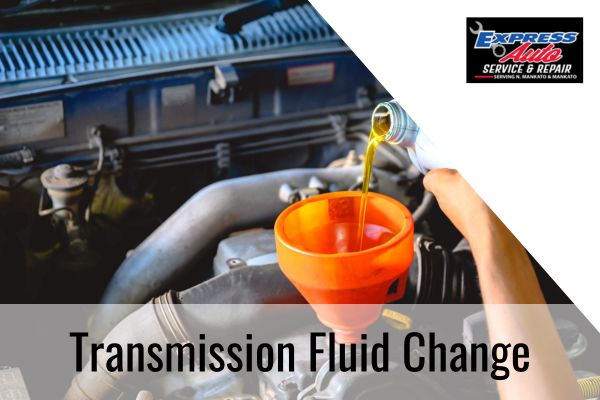Transmission fluid is one of the most important components of your vehicle’s transmission system. Without it, your transmission won’t function properly. Whether your car or truck has an automatic or a manual shift, the fluid lubricates and cools down the transmission. This essential fluid also helps provide hydraulic pressure so that you can change gears smoothly. We’ll take a look at what happens if you don't change your transmission fluid, which can lead to transmission repair.
- Overheating: Transmission fluid lubricates and cools the internal components of the transmission. When the fluid is old and contaminated with sludge and metal shavings, it is unable to disperse heat effectively. This can cause the transmission to overheat and lead to untimely wear and possible transmission failure.
- Inconsistent Shifting: Deteriorated transmission fluid leads to poor hydraulic pressure. Without the proper pressure, shifting becomes difficult. You might experience jerky and delayed shifting. The transmission sometimes slips out of gear when the pressure is insufficient.
- Reduced Fuel Economy: If your vehicle is struggling to run optimally due to degraded transmission fluid, you will start to notice poor fuel economy. Changing the fluid as recommended by the vehicle manufacturer can help with fuel efficiency and prevent costly transmission repairs.
- Voided Warranty: If your car or truck is newer and still within warranty, you risk having the manufacturer’s warranty voided by not sticking to scheduled maintenance. This includes transmission fluid changes.
- Transmission Failure: The transmission is a complex and expensive piece of equipment. Ignoring recommended transmission fluid changes could lead to total transmission failure. If this happens, the repair or replacement is costly.
How Often Should You Change Transmission Fluid?
Now that you understand what happens if you don't change your transmission fluid, you are likely wondering when and how often to change it.
Every vehicle is different, and the age of the transmission matters. Older cars and trucks typically require fluid changes every 30,000 to 50,000 miles. Some newer makes and models can go for up to 150,000 miles before a change is necessary. And some vehicles may never need new transmission fluid. The bottom line is that you need to check with the vehicle manufacturer and your owner’s manual.
Wondering what happens if you don't change your transmission fluid? Contact our ASE-certified technicians at Express Auto Service & Repair for more information about transmission repair and to schedule an appointment. Our auto shop serves vehicle owners in Mankato, MN, and the neighboring communities of North Mankato, MN, New Ulm, MN, and St. Peter, MN.
What happens if you don't change your transmission fluid? Call the transmission repair experts at Express Auto Service & Repair for advice.
Transmission fluid is one of the most important components of your vehicle’s transmission system. Without it, your transmission won’t function properly. Whether your car or truck has an automatic or a manual shift, the fluid lubricates and cools down the transmission. This essential fluid also helps provide hydraulic pressure so that you can change gears smoothly. We’ll take a look at what happens if you don't change your transmission fluid, which can lead to transmission repair.
- Overheating: Transmission fluid lubricates and cools the internal components of the transmission. When the fluid is old and contaminated with sludge and metal shavings, it is unable to disperse heat effectively. This can cause the transmission to overheat and lead to untimely wear and possible transmission failure.
- Inconsistent Shifting: Deteriorated transmission fluid leads to poor hydraulic pressure. Without the proper pressure, shifting becomes difficult. You might experience jerky and delayed shifting. The transmission sometimes slips out of gear when the pressure is insufficient.
- Reduced Fuel Economy: If your vehicle is struggling to run optimally due to degraded transmission fluid, you will start to notice poor fuel economy. Changing the fluid as recommended by the vehicle manufacturer can help with fuel efficiency and prevent costly transmission repairs.
- Voided Warranty: If your car or truck is newer and still within warranty, you risk having the manufacturer’s warranty voided by not sticking to scheduled maintenance. This includes transmission fluid changes.
- Transmission Failure: The transmission is a complex and expensive piece of equipment. Ignoring recommended transmission fluid changes could lead to total transmission failure. If this happens, the repair or replacement is costly.
How Often Should You Change Transmission Fluid?
Now that you understand what happens if you don't change your transmission fluid, you are likely wondering when and how often to change it.
Every vehicle is different, and the age of the transmission matters. Older cars and trucks typically require fluid changes every 30,000 to 50,000 miles. Some newer makes and models can go for up to 150,000 miles before a change is necessary. And some vehicles may never need new transmission fluid. The bottom line is that you need to check with the vehicle manufacturer and your owner’s manual.
Wondering what happens if you don't change your transmission fluid? Contact our ASE-certified technicians at Express Auto Service & Repair for more information about transmission repair and to schedule an appointment. Our auto shop serves vehicle owners in Mankato, MN, and the neighboring communities of North Mankato, MN, New Ulm, MN, and St. Peter, MN.


